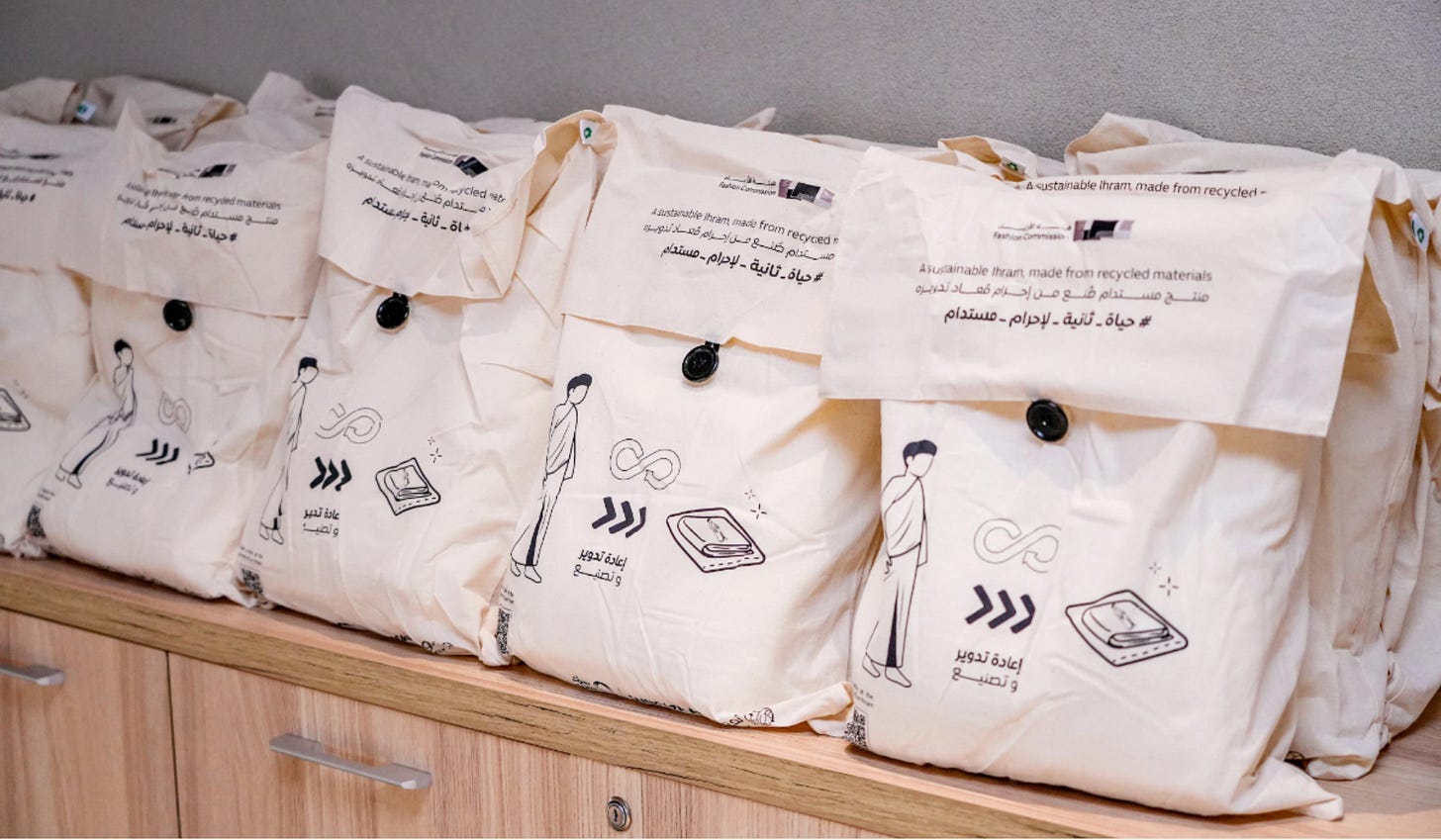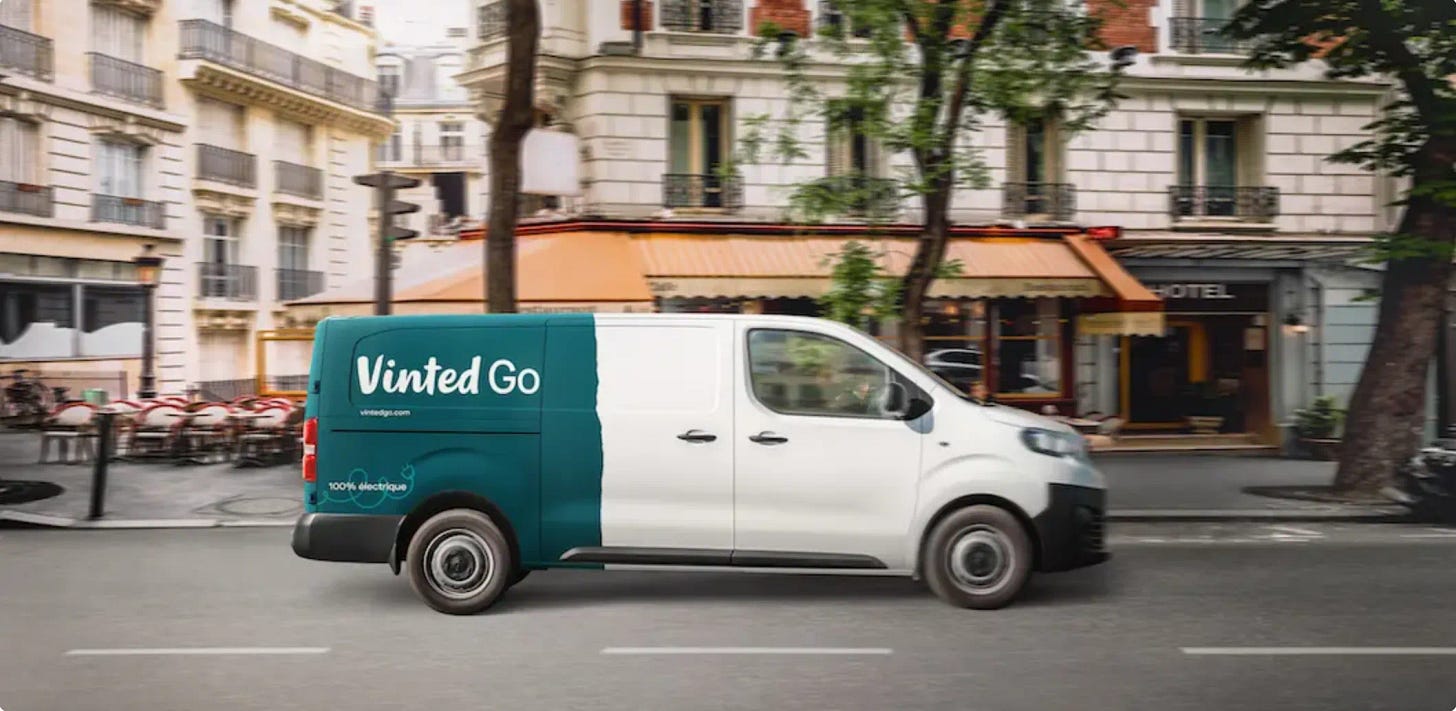The Curatorium #3
Culture, Commerce, and Craft: A curated guide to the Global South's most fascinating stories by Subject Matter
Welcome to The Curatorium #3.
Discover the hidden gems that sparked our curiousity and expanded our thinking this month. Each selection has earned its place through the quiet power to shift perspective or introduce unexpected delight.
As curator of the remarkable amid the ordinary and with a focus on the culture-tech in the Global South and sustainability, we share these profound and playful treasures with you.
Ihram, a glance on Saudi circularity
During Hajj and Umrah journies, male pilgrims wear two pieces of white, unstitched cloth: one worn around the waist and the other around the chest. These pieces of cloth are known as Ihrams, and these serve an important purpose: to have all who undertake the Hajj and Umrah appear equal. In addition to equality, by being plain in appearance and white in colour, Ihrams symbolise humility and peace.
Saudi Arabia’s Ministry of Culture’s Fashion Commission recently introduced its Sustainable Ihram initiative, which focuses on recycling and repurposing used ihrams. Read details of the fantastic initiative in this report by the Commission.
We love to see sustainability in action, outside of our decks and into the real world, being adopted en masse and this was such an impactful example of it.
As part of making Vision 2030 a reality, Saudi Arabia’s Fashion Commission, realises that the future of the rapidly emerging textiles value chain in Saudi Arabia needs to be built on deep sustainability foundations, covering all three elements of the sustainability challenge. These range from using renewable and/or recyclable materials; to ensuring all stakeholders through the value chain benefit from a range of value adding activities; and finally, securing sustainable economic returns for firms involved in the chain.
Consumer IQ with Estée Lauder
The Estée Lauder Companies has 80 years of consumer data and now they are putting it to work through Consumer IQ.
With nearly 25 brands operating across 150 countries, ELC generates an immense amount of consumer, market, and industry information to support product innovation, marketing, and sales. This vast amount of data, spread across the company in different formats, including PDFs, PowerPoints, and spreadsheets, is dense with meaningful insights that employees can use to create products and campaigns that meet consumer needs.
They’ve now partnered with Microsoft to create an AI agent that will help their employees get rid of 100s of PDF and slide decks. Read the entire case study here.
As per Consumer Goods, the effort reduces manual research and eliminates duplicative efforts, instead allowing employees to use natural language prompts to query ConsumerIQ and find the information they need.
Example use cases:
Jumping on social trends: TikTok influencers chat about organic lip gloss and Estée Lauder marketers can search for global consumer behavior trends in the lip gloss category. They can then develop their own campaign using an ELC brand.
Summarising data: Employees can ask ConsumerIQ, “What are the latest trends for mascara use among Gen Z?” and receive an answer in seconds — compared to the hours it would take to review and summarize PDFs, per Microsoft.
New product development: A marketer can submit a prompt to ConsumerIQ asking about beauty routines around products of interest: “What are popular moisturizing routines among customers in Washington state, Oregon, and Idaho?” ConsumerIQ would retrieve PDFs with graphs, pictures, and other graphics, and summarise the information to be used within R&D processes.
The Changing Face of China
If you read on piece on modern China, make sure its this one. In this piece by Natalia Cote-Munoz who returns to the country after nearly a decade, she paints a personal and societal narrative of a country that has rapidly changed, is developed and is not pausing for anyone.
She also draws out top consumer trends that are driving the country and tells us with vivid clarity on the layers of underlying societal shifts that are driving these trends.
We gobbled this piece up- check ‘em out: Musings from the Time of Monsters
Vinted has tripled its profit between 2023 and 2024 and currently the #1 fashion site in France.
Vinted's success in new territories indicates growing consumer acceptance of second-hand shopping, particularly in markets where sustainability concerns are increasingly influencing purchasing decisions.
"We're well on our way making second-hand first choice across Europe," says Sebastiaan Lemmens, Strategy Director, Vinted.
Vinted’s success is quite telling of the consumption patterns that are growing across Western Europe, especially : inflation and environmental concerns have driven shoppers toward second-hand options. Vinted notably meets this demand with easy logistics and quality control: "We act as swiftly as we can against anything that violates our terms and conditions," highlighting the balance between rapid expansion and maintaining marketplace integrity - a secret sauce of their success.
Think someone else would love this? Subscribe yourself, then share with reckless abandon!













